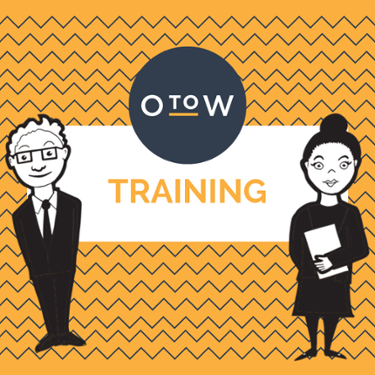April
18th
2019
Upskilling: 5 Easy Ways to Get More Work
by
Joel Davidge
Career Advice,
Staffing and Recruitment Advice
Upskilling is the act of learning additional skills (thanks, dictionary!)
Recruiters always want to see what you can bring to the table, so the more skills you have on your CV the better. Sure, “Great personality” sounds lovely, but “Certified in Cocktail Bartending” is better!
If you're looking to progress in your career – we've got your back. Here are some easy ways to add value to your CV and get more work.
These mostly focus on hospitality roles (it's what we do!) but you’ll find that they give you a lot of transferable skills which you can use in other jobs.
As well as offering you the option of more work, upskilling also engages your creative side, making your work more enjoyable.
Baristas are team members training in the art of coffee making. We’re not talking instant coffee here. A good barista will be able to use an espresso machine, steam milk, and (with a bit of training) make some pretty latte art. Good latte art is an art form (there are even competitions you can compete in) and let’s be honest: who doesn’t like coffee?!
Bartenders work on the bar serving drinks. Sounds simple?
Well, there’s a lot which goes into being a good bartender. Learning how to pour a good pint, how to change a beer barrel or the different types of wine are all valuable skills. If you’re keen to learn more, you can then move on to Cocktail Bartending or Mixology.
So, how exactly are these transferable to other careers? Well, knowing your Merlots from your Chenin Blancs will impress the customers, and you never know - that knowledge might impress a future client and land you a business deal. This work also improves your communication skills, as you engage with the customers a lot more than if you are running food.
FIND OUT MORE: bartender and barista upskilling training courses
Once you've mastered skills like bartending, you'll want to add management experience to your CV.
In the catering world team leaders manage small teams (usually 5-10 people) when an event is running. They ensure the team delivers food and drinks to the right table and deal with customer queries such as dietary requests.
Upskilling to a team leader means taking on responsibility for your team. It gives you great management experience which will help you in other roles. We're recruitment pros, so trust us when we say that recruiters love management experience on a CV!
Upskilling opens new opportunities – even ones you didn’t know existed.
Even if you usually work in Front of House (waiting, bartending) picking up some Back of House skills could lead to more work, and you may find you enjoy it more than what you usually do.
Kitchen Assistant perform basic kitchen tasks. Usually these will be simple food prep tasks like prepping vegetables or plating food, but this can be the first step in a successful and well-paid culinary career. Some of our chef brigade started out at this level, learning valuable skills which would serve them later in their career.
Interested in finding out more? Check out our recent post on kitchen skills to make your stand out and progress.
As we’ve covered, upskilling can be a great way to get more work. But upskilling is more than just being able to apply for more jobs. It’s about being able to do more within your current role and therefore progress at your current company.
Let’s say you’re working in a restaurant. You might not think that doing a course in computer skills or would be that useful – think again! If you can design a new menu or create a spreadsheet tracking the ingredients ordered that week, then you’re proving your worth to the company and gaining amazing transferable experience for your CV.
Operating more efficiently and productively within your current role will mean that you’ll be appreciated by your colleagues and noticed by your bosses. That conversation about a potential pay-rise just got a whole lot easier!
 An upskilling session will teach you the basic skills you need. Completing an accredited, certified course goes a step further, with more in-depth training and a qualification which you can add to your CV.
An upskilling session will teach you the basic skills you need. Completing an accredited, certified course goes a step further, with more in-depth training and a qualification which you can add to your CV.
These courses do cost, and though you can usually find ones with prices for every budget it’s super important to do your research before signing up and parting with your hard-earned cash. Speak to people in the industry or your managers about which courses they would recommend. Search online for courses which are recommended by leading experts in your field. Most importantly, ensure the course is by an accredited body.
For example, our online eLearning courses cover all aspects of the hospitality sector, and are accredited with Flow, a leading hospitality training provider within the catering and events industry. Courses are Continue Professional Development (CPD) Certified and recognised by the Institute of Hospitality and Scottish Qualifications Authority (SQA).

This article is part of Off to Work's'The Future of Hospitality'series. The survey was completed ...
Latest industry thinking, job opportunities, events, case studies and client offers.
We want to help provide some of the best experiences and memories people have ever had. With this as our guiding principle, we have continuously elevated our recruitment processes and standards to bring you the very best in hospitality.

Copyright Off to Work 2024